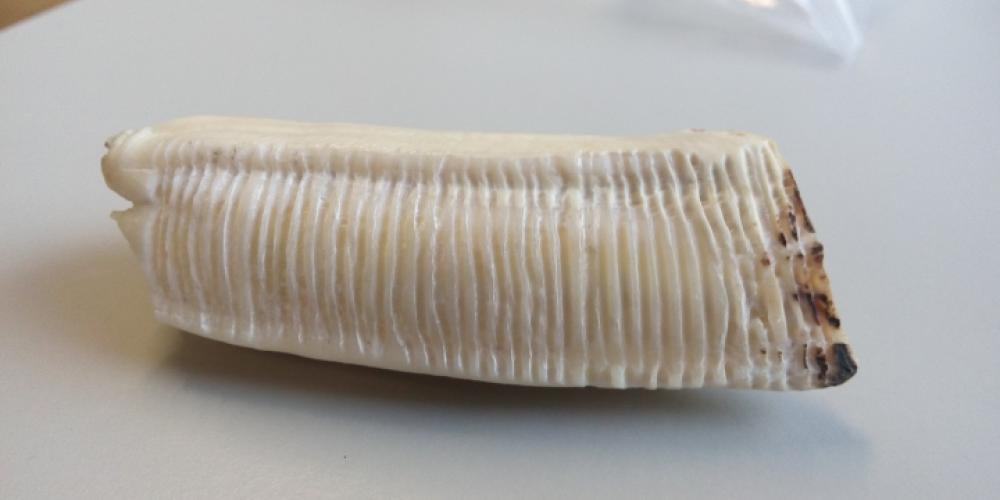
De Winter: “The study of climate change over short periods of time – seasons, years and decades – helps us to understand how climate and the environment have behaved on the human timescale and how dynamic and short-lived extreme changes occurred in the past.”
The results of Niels de Winter’s research at VUB’s Analytical Environmental and Geochemistry research group are at the interface between biology, geology and chemistry.
He examined both fossil and modern specimens of shells and teeth and compared the results. Animal teeth and the shells of mussels and oysters are ideally suited for climate research because they grow step by step during the creatures’ lifetime. They form unique archives of the changing environmental conditions in which the animals lived and how they developed under the influence of climate characteristics such as temperature and nutrition. These characteristics can be seen in the ratio of oxygen and carbon isotopes of shells or teeth, allowing researchers to reconstruct seasonal or even daily changes in climate.
New techniques
To extract this valuable information, de Winter adapted and improved new analytical techniques, such as X-ray fluorescence and mass spectrometry, to obtain data on a scale of tens of micrometres. He applied these techniques to recent shells and teeth as well as to fossils and, in both cases, succeeded in revealing important climate information, such as the temperature at which the shells developed. This is an important breakthrough and a path for further research into short-term climate change.
De Winter: “One of the main conclusions of this research is that teeth and bivalve shells can be used to reconstruct climate at the scale of a season or even days, millions of years back in time when dinosaurs were breathing in air that contained up to five times as much carbon dioxide as our current atmosphere. With this information we hope to be able to predict the impact of climate change in the future.”
Awarded by the European Commission
In the coming years, de Winter will continue his research into the chemistry of bivalve shells by studying how they store this information about the climate, and will lead an international research team. For this follow-up research, he has received a prestigious Marie Curie grant from the European Commission, which supports European scientific research in a variety of fields.